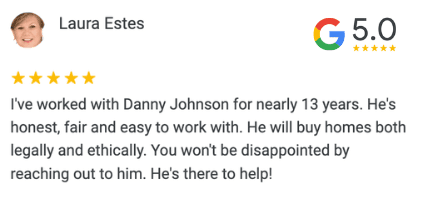
Power of Attorney in Texas: Can You Legally Sell Your Parents' House?
By Danny Johnson | Updated 9/10/2024, 4:00:57 PM
Discover how to legally sell your parents' house in Texas using power of attorney. Understand your authority to sell and how to properly handle the paperwork.
- Key Takeaways
- Can I sell my parents home with power of attorney in Texas?
- The Process of Selling a House with Power of Attorney
- Reviewing the POA Document
- Preparing the Property for Sale
- Navigating Legal and Financial Aspects
- Closing the Sale
- Understanding Power of Attorney in Texas
- Types of Power of Attorney
- Scope and Limitations of POA Authority
- Who can override a power of attorney in Texas?
- Potential Challenges and Risks
- Can I use a Power of Attorney to Sell My Mother's House?
- Selling with Power of Attorney to a House Buying Company
🗂 Table of Contents
This question eventually gets asked by many adult children. Selling your parents house is hard no matter the situation. Adding a sprinkle of legal authority and you can feel overwhelmed quickly. But don't worry. We're here to shed light on this tricky topic.
Jack A. shared this story with us, "I remember the day my mom handed me a thick envelope. Inside was a power of attorney document, making me her agent. The weight of responsibility hit me hard. What if I had to sell her house? Could I even do that? Could I possibly sell my parents house? What if i want to sell the house to a quick sale home buyers company? I live in Texas."

In Texas, a valid power of attorney can indeed allow you to sell your parents' house. But it's not as simple as signing on the dotted line. There are rules to follow and duties to uphold. Let's dive into the nitty-gritty of property sales, fiduciary duty, and Texas law.
Key Takeaways
- A valid power of attorney in Texas can give you the authority to sell your parents' house
- Different types of power of attorney grant varying levels of authority
- You must act in your parents' best interests when you sell the house
- Compliance with Texas law is essential when selling real estate with power of attorney
Can I sell my parents home with power of attorney in Texas?
In Texas, you can sell your parents' home with a power of attorney (POA). This legal document gives someone the right to make sell a house for another person. It's very useful when parents can't be there for the sale because of health issues or other reasons.
If your parents have passed, you will need to look into selling a house while in probate instead of selling with a power of attorney.

Using power of attorney to sell a house in Texas requires a little homework. Yes, I know nobody likes homework. But, in a situation like this where you are making a big decision to sell your parents house with power of attorney, you will need to know certain things. The POA must say it's okay to sell the property and be signed, notarized, and filed in the county where the property is.
Sometimes, people need to sell their parents' house to pay for assisted living. This presents its own challenges.
Here are important things to remember when using a power of attorney for selling property on behalf of another person:
- Choose between a durable or non-durable POA based on your parents' needs
- Ensure the POA clearly outlines permissions to sell a property on behalf of the principal
- Disclose the use of POA to all parties involved in the sale
- Seek advice from real estate professionals familiar with Texas POA laws to ensure that the power of attorney is legitimate
Remember, getting your parents' consent is required. This is usually set up during estate planning. The agent must act for their benefit and might need to check if they can make decisions. A POA makes selling easier, but talking to a real estate lawyer or attorney who can provide guidance is smart. They can help with all the legal stuff that is difficult to follow and changes over time.
The Process of Selling a House with Power of Attorney
A power of attorney allows the authority to act on behalf of another person. Here are the steps to take to ensure you have the proper authority to sell the property.
Reviewing the POA Document
Start by checking the Power of Attorney document carefully. The power of attorney may authorize property transactions but could also stipulate rules for those transactions. Make sure the agent can legally handle real estate transactions. This is where a real estate attorney really comes in handy. Expect to pay from $200 to $300 per hour for reviewing the document.
Preparing the Property for Sale
After checking the POA, get the property ready for sale. Clean it, fix any repairs, and stage the home. Doing these things can help increase the sale price and make the sale faster.

There are many ways to sell the house. You could sell the house for sale by owner, you could hire a real estate agent to list the house. You could even sell as is to a cash home buyer, real estate investor.
Navigating Legal and Financial Aspects
The agent must deal with legal and financial parts of the sale. This means getting all needed documents and making sure the title is transferred correctly. In Texas, there's no state tax on capital gains, but federal taxes might apply based on the sale price and the seller's income.
Closing the Sale
The last step is closing the sale. Accept an offer that's good for the seller, transfer the ownership legally, and make sure all papers are signed right. The agent should always be open and act responsibly for the seller's benefit.
By knowing and following these steps, agents can sell a parent's house without issue.
Understanding Power of Attorney in Texas
Power of attorney (POA) is a key legal tool in Texas. It lets someone make decisions for another person. In Texas, there are different types of POAs, each with its own purpose.
Types of Power of Attorney
Texas has several POA types. These include:
- General POA: Grants broad authority
- Limited POA: Gives specific powers
- Durable power of attorney: Remains valid if the principal loses legal capacity
- Springing power of attorney: Takes effect under certain conditions
Scope and Limitations of POA Authority
A POA's authority is limited to what the document says. It ends when the principal dies. Agents must act in the principal's best interest. Knowing these limits is important for using a POA in Texas.
According the National Council on Aging, "You can use a limited POA to restrict the scope of your agents to certain types of affairs. Most often, this is seen as either a medical POA or a financial POA. This allows you to split the responsibility over your affairs among multiple agents based on their strengths."
Who can override a power of attorney in Texas?
In Texas, several parties can challenge or override a power of attorney (POA). The person who gave the POA can take it back if they're mentally capable. They must do this in writing and file it with the county clerk.
Courts can step in if there's proof of the agent doing something wrong. Family members or others with an interest can question the POA's validity in court. This usually happens if people doubt the agent's actions or if the person giving the POA wasn't fully able to make the decision.
If the person giving the POA can't make decisions anymore, a court might name a guardian. This guardian can take over the POA if it's best for the person. The court looks at what's best for the person in making this decision.
According to Texas Law Help, "Your general durable power of attorney ends if the court names a guardian of your estate. Your general durable power of attorney may be suspended if the court designates a temporary guardian."
To avoid problems, agents should only do what they're allowed to do and keep good records. It's smart for people giving the POA to pick trustworthy agents. They should also think about having different POAs for different situations, like health or money matters.
Potential Challenges and Risks
Selling a house with power of attorney can be tricky. Legal issues often pop up when family members disagree with the sale or doubt the agent's authority. This can cause long court fights and slow down the sale.
Agents could face financial trouble if they don't act for the principal's benefit. To dodge these problems, agents must stick to the law closely.
Family conflicts can make selling hard. These disputes can hurt relationships and make decisions harder.
If there is a mortgage, you will need to find out what the balance is.
Agents need to be careful not to break their trust. This can happen if they handle money badly or make choices that don't match the principal's goals. To lessen these risks, agents should:
- Keep detailed records
- Communicate openly with all parties
- Seek legal advice when needed
By knowing these challenges, agents can handle the sale better and protect themselves from legal and financial issues.
Can I use a Power of Attorney to Sell My Mother's House?
We often are asked if you can use a power of attorney to sell your mother's house. First, we are not lawyers. It is recommended you speak to qualified, experienced attorney for any legal questions.
The answer to being able to sell their mother's house will boil down to whether the power of attorney is in affect and grants the authority to sell the mother's house in Texas.
Things can get a little trickier depending on if you are trying to sell the house before or after your parents' death.
According to Smart Asset, "While POA can extend to real estate transactions, power of attorney can only be used to sell a property before death. After the principal’s death, the property must be sold through the probate process."
Selling with Power of Attorney to a House Buying Company
When you sell a house with a Power of Attorney (POA) in Texas, cash buyers can make things much, much easier. Real estate investors know how to handle POA deals, making quick sales possible. This is great when you're in a hurry.
House buying companies offer cash deals, skipping the need for a mortgage. This means faster closings, sometimes in days or weeks. For agents dealing with POA, this speed is a big plus, especially for properties owned by people who can't manage them anymore.
Even with a simpler process, it's important to be careful. Agents should look at different offers to make sure the price is right. Talking to a real estate expert can help get the best deal for the owner. In Texas, you usually need a Special Durable Power of Attorney for Real Estate Transactions when it comes to selling a home.
Selling to a house buying company with a POA can be easy and flexible. But always think about what's best for the owner. Remember, all Powers of Attorney in Texas end when the owner dies. It's key to follow the law and have the right documents for a valid sale.
If you would like to get a no-obligation cash offer, Danny Buys Houses can help. We buy houses in San Antonio, TX. We pay cash and buy in any condition. Give us a call or fill out our fast cash offer form. We look forward to speaking with you.

AUTHOR
Danny Johnson
Owner and Founder at Danny Buys Houses
Danny Johnson is an experienced real estate investor who has been buying houses for cash since 2003. As owner of Danny Buys Houses, Danny's goal is to help homeowners sell their house fast, regardless of the situation, so they can move on with their life.
Danny has been featured in publications such as Forbes, Realtor.com, BiggerPockets, Yahoo Finance, US News, and more. He is also the author of the book 'Flipping Houses Exposed'.




